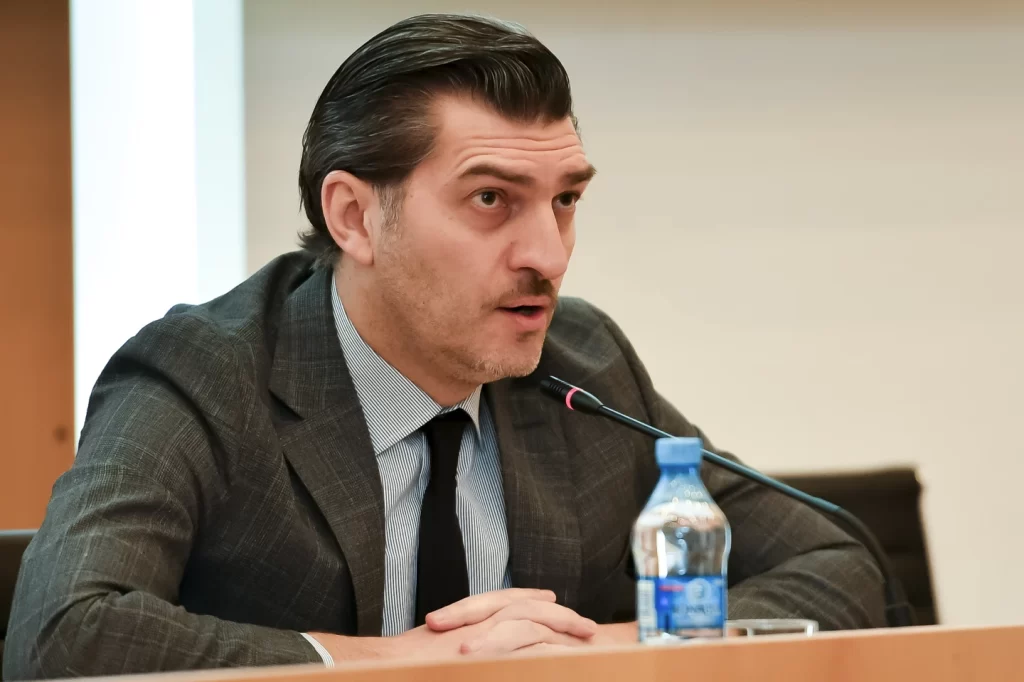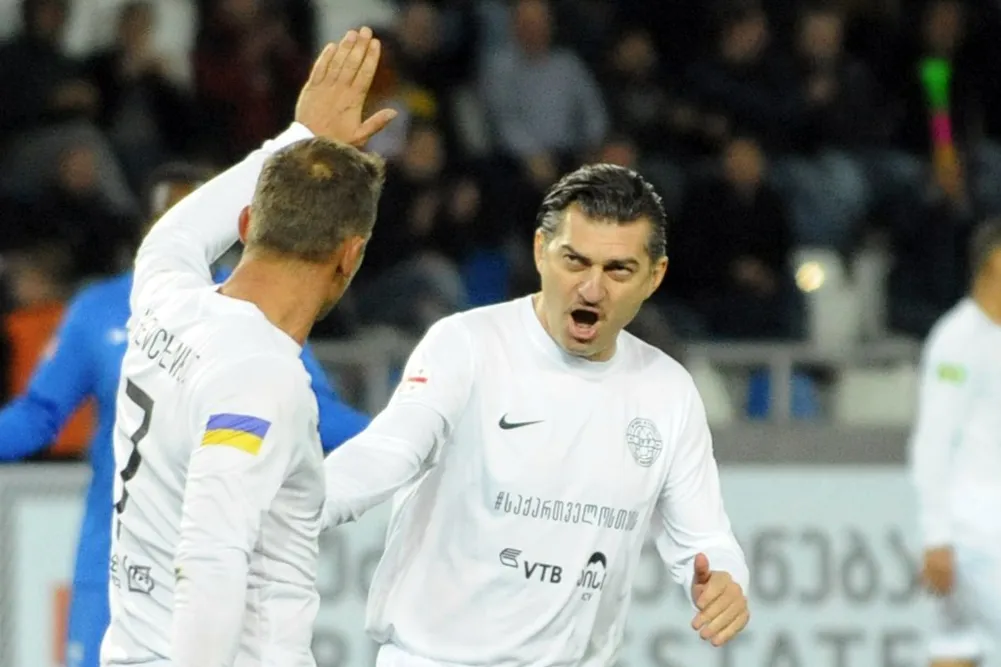Georgia’s governing Georgian Dream party nominated former national soccer player Mikheil Kavelashvili, 53, as its presidential candidate Wednesday, following a contentious parliamentary election that has deepened the country’s political divisions.

Kavelashvili, a former Premier League striker who played for Manchester City and Swiss clubs, is expected to win the December 14 electoral college vote, which is controlled by the ruling party. The nomination comes amid ongoing protests over October’s disputed parliamentary election, widely viewed as a referendum on Georgia’s European Union aspirations.
The opposition has boycotted parliament and alleged Russian interference in the October 26 vote, which kept Georgian Dream in power. European election observers reported a “divisive” atmosphere marked by bribery, double voting, and physical violence.
Current President Salome Zourabichvili, whose term expires next month, refused to attend parliament’s opening session Monday, joining the opposition in rejecting the legislature’s legitimacy. While Zourabichvili was elected by popular vote, recent constitutional changes replaced direct presidential elections with a 300-seat electoral college system comprising parliamentarians and regional representatives.

Party founder Bidzina Ivanishvili, a billionaire who made his fortune in Russia, presented Kavelashvili’s candidacy, praising his “significant contribution to protecting Georgia’s national interests and strengthening the country’s sovereignty.” Kavelashvili, elected to parliament in 2016, co-founded the People’s Power political movement in 2022, known for its anti-Western stance.
Critics accuse Georgian Dream of increasing authoritarianism and Moscow alignment. The party recently passed legislation similar to Russian laws restricting free speech and LGBTQ+ rights. The EU indefinitely suspended Georgia’s membership application in June after parliament approved a law requiring organizations receiving significant foreign funding to register as foreign agents.
Kavelashvili, who helped author the controversial foreign agents law, addressed parliament claiming “radicalization and polarization” in Georgia was foreign-driven, while promising to “restore the presidency to its constitutional framework.”



